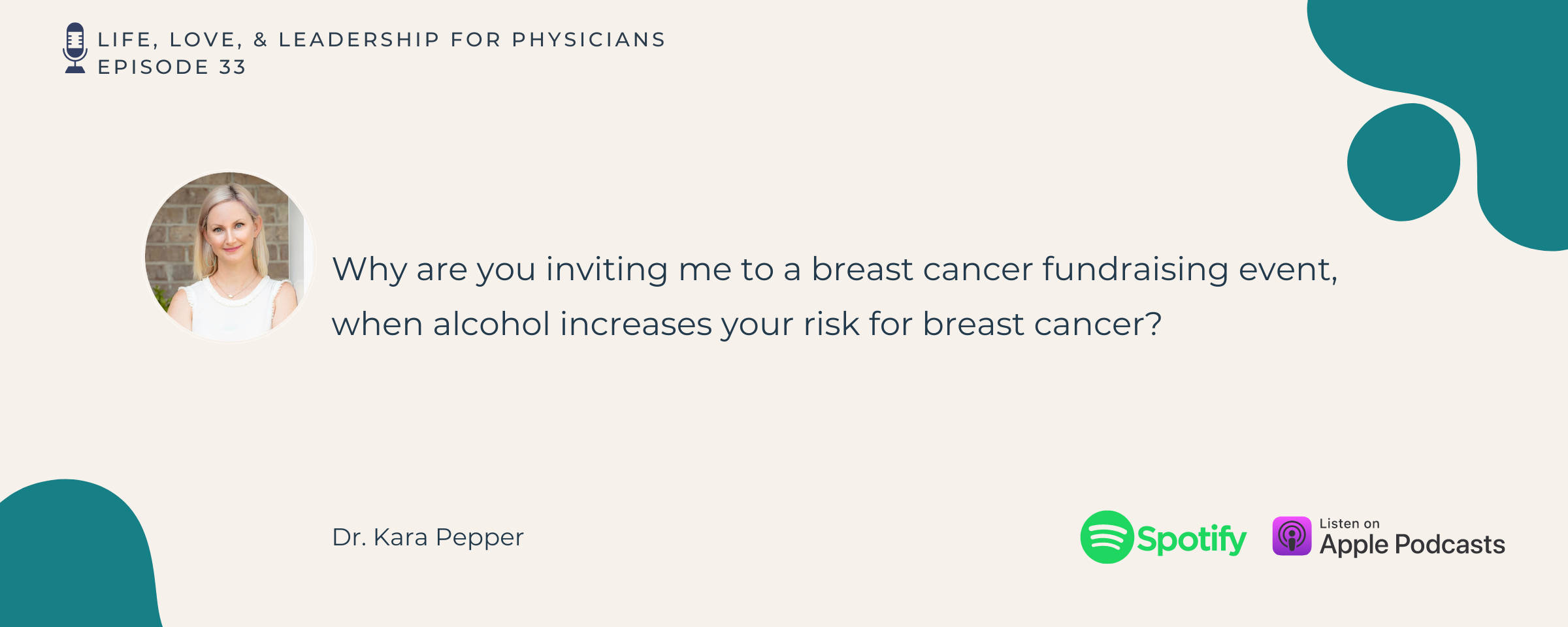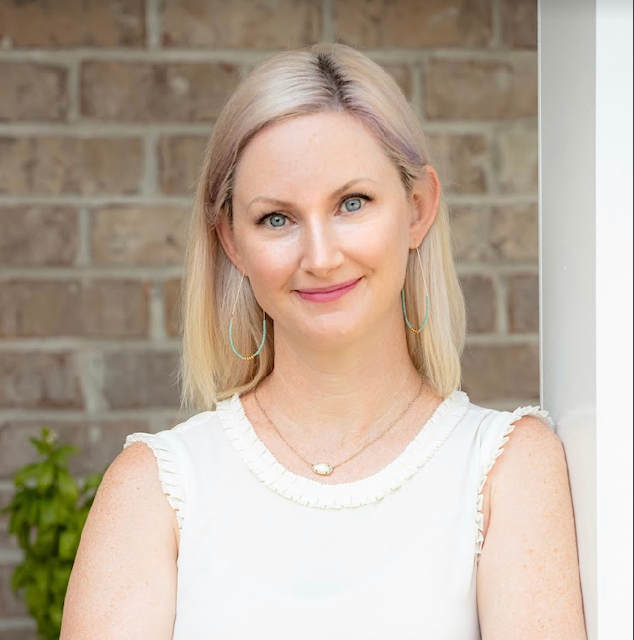Do you consider yourself a workaholic? Do you reach for a drink on Friday nights to “turn off” from the week? If you had asked Dr. Pepper what her drug of choice was, she would have told you it was her work. But, as it turns out, alcohol was too.
In episode 33 of the Life, Love, and Leadership for Physicians podcast, I have a vulnerable conversation with Dr. Kara Pepper as she shares her journey of perfectionism, workaholism, and overcoming gray area drinking. You’ll learn how her ballet background influenced her pursuit of perfectionism in her medical career, why 20% of women physicians are considered gray area drinkers, how we use alcohol and escapist behaviors to numb discomfort, and ways to overcome these behaviors.
This episode sheds light on the challenges many individuals face in their pursuit of success and highlights the paradox of the normalization of alcohol consumption in the medical community.
Dr. Kara Pepper attended the University of Miami Miller School of Medicine and completed her Internal Medicine residency at Emory University School of Medicine. After 13 years in clinical practice as one of Atlanta’s top doctors, she opened her own cutting-edge telemedicine practice to provide high-quality, comprehensive, patient-centered care. This practice is available to all adults over 18, especially those struggling with eating disorders.
What is gray area drinking, and why do we use alcohol to numb discomfort?
Dr. Pepper described herself as a weekend social drinker. She didn’t see it as an issue because she never drank during the workweek, and it wasn’t impairing her doing her job or being a parent. When COVID happened, alcohol became the fabric of her social bubble as a way to deal with boredom on the weekends as well as shut off her brain, alleviate the mental stress of work, and escape the fear and uncertainty of the pandemic.
“As they say, in recovery, it’s not how much you drink, but how you drink, I was still only drinking Fridays and Saturdays, but I wanted my brain to stop.”
Gray area drinking explains the spectrum between teetotaling with alcohol and having a chemical addiction. For many, alcohol becomes a way to cope with discomfort, a pattern that often goes unnoticed until it evolves into something more concerning.
“You may be having blackouts, but otherwise, you’re functioning fine, and your life doesn’t look like a problem from the outside, but you’re worried about it. There’s no rock bottom, but you’re worried you’re headed there. It’s that gray space.”
How can we support ourselves when transitioning to sobriety?
Rather than attending meetings, Dr. Pepper decided to quit more privately because of her deep shame and how addressing it this way would make it more real. If you find meetings unfeasible, having a circle of people you can trust to know your struggles, such as your family, therapist, and close friends, is important.
Recognizing the thoughts leading to your desire to drink is also crucial. Dr. Pepper’s triggers centered around wanting to turn her brain “off” and combating boredom. Surrounding yourself with non-drinkers or those with a “take it or leave it” attitude can bolster your alcohol-free journey. While finding the courage to verbalize your problem may take time, saying it out loud can help to dispel the loneliness and shame that comes with having an unhealthy relationship with alcohol and connect you with others going through similar situations.
“I smoked a pack of cigarettes a day starting at 14, then I developed an eating disorder, then I became a workaholic, then I started over-drinking. I have the brain of an addict, even if I didn’t carry a diagnosis, and for me, that feels like the truest truth that I know today. And to be able to really claim that and when I say those words out loud, to have hundreds and hundreds of people [say], ‘Me too. Me too. Me too,’ it dispels the loneliness and the shame for me because there are so many people who are struggling and feel like they have to do it alone. You don’t have to do this alone at all.”
Why does rest feel so uncomfortable?
Dr. Pepper was so accustomed to the non-stop churn and burn of her practice that it made it difficult for her to feel okay with slowing down and taking a break. Rest is so uncomfortable because you have to be with yourself, and sometimes we don’t like what we see. We can also have a history of trauma that makes it feel unsafe to rest, in addition to many other reasons.
“It really took practice and a lot of support and understanding that it’s okay to rest, it’s safe to rest, I have permission to rest. My worth is not defined by what I do. I’m worthy of rest just because I’m a human. That took a lot of work to get there.”
How can we move to a healthier place and overcome escapist behaviors?
Alcohol isn’t the only concerning behavior we use to avoid emotions. Other escapist behaviors can include things such as overworking, shopping, binging TV, or using THC. To learn more about overcoming escapist behaviors and Dr. Pepper’s journey with perfectionism and gray area drinking, listen to episode 33 of the Life, Love, and Leadership for Physicians podcast.



